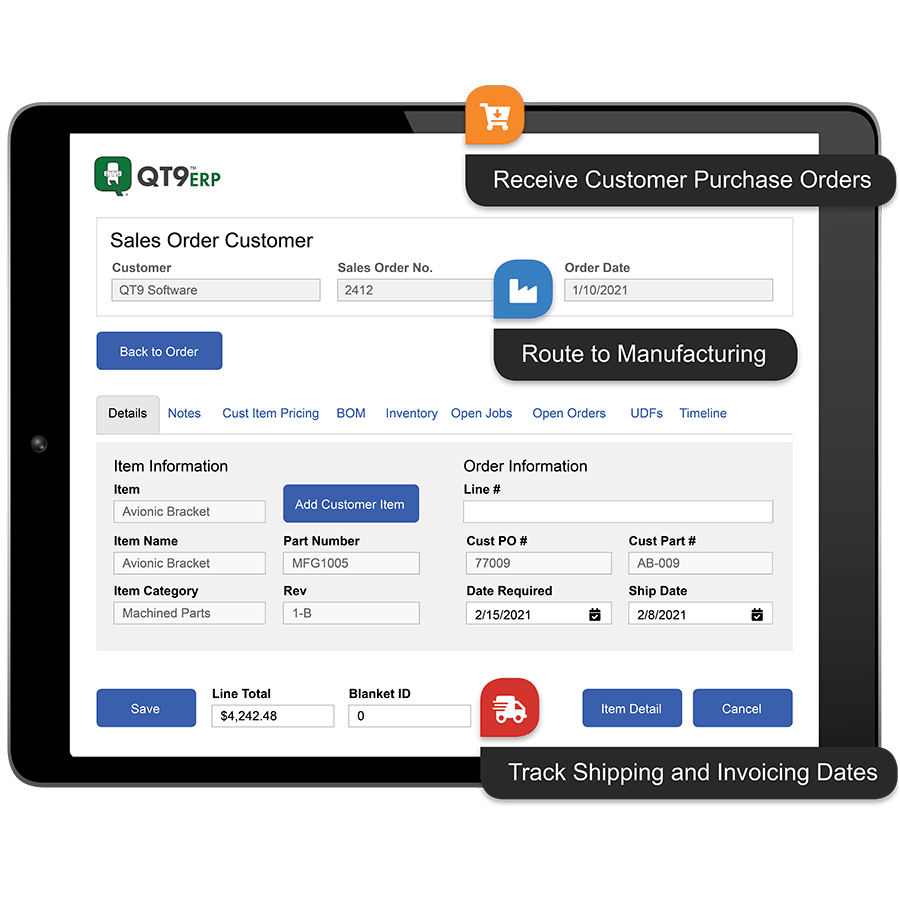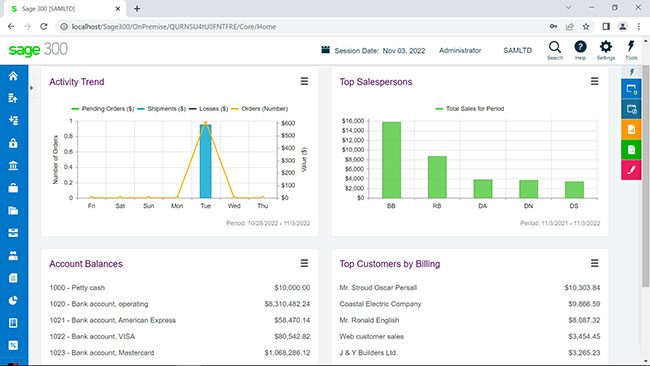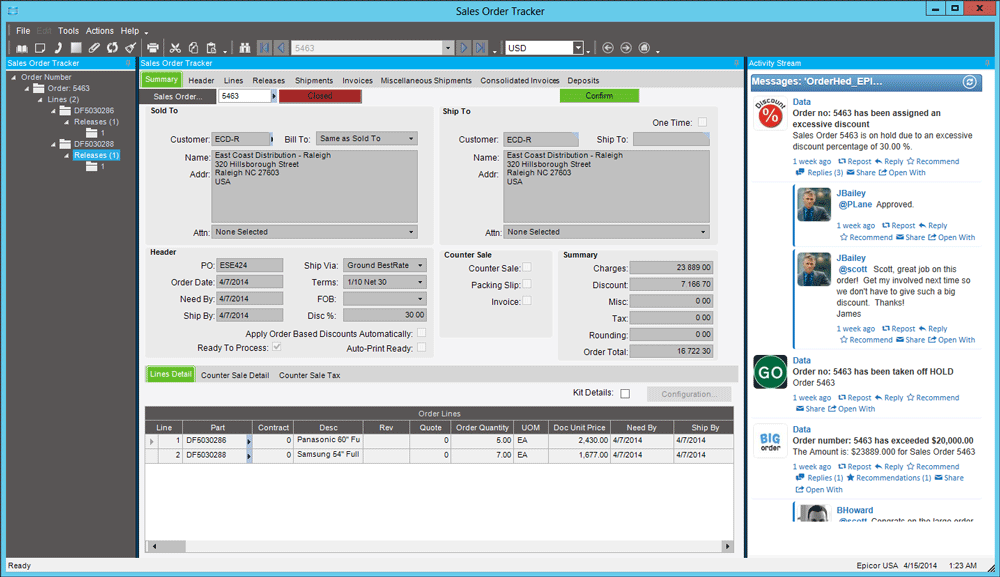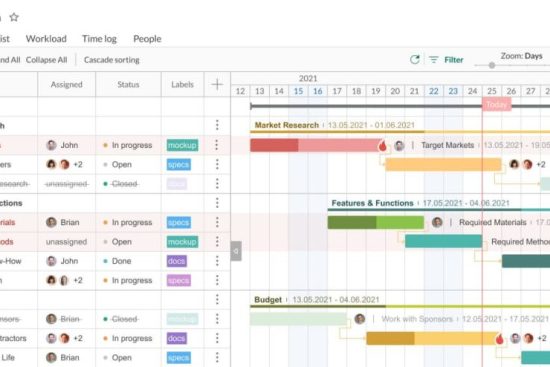
Managing sales efficiently is crucial for business growth. ERP software can help streamline sales processes.
ERP software integrates various business functions into one system. For sales management, it offers tools to track leads, manage customer relationships, and monitor sales performance. This software helps businesses stay organized and improves productivity. Sales teams can access real-time data, making informed decisions easier.
With ERP software, companies can enhance customer satisfaction and boost sales. It simplifies tasks, reduces errors, and saves time. ERP systems are essential for businesses wanting to stay competitive in today’s market. Discover how ERP software can transform your sales management and drive success.

Credit: www.sagesoftware.co.in
Introduction To Erp Software
ERP software has become a vital tool for businesses. It helps in managing various operations efficiently. In sales management, ERP software plays a crucial role. This article will introduce ERP software and its importance in sales management.
What Is Erp?
ERP stands for Enterprise Resource Planning. It is a type of software used by organizations. ERP software integrates various functions into one complete system. This system helps streamline processes and information across the organization. It includes modules for finance, HR, manufacturing, supply chain, and sales.
With ERP, businesses can collect, store, manage, and interpret data. This data is from many business activities. It provides a real-time view of core business processes. The software uses common databases maintained by a database management system.
Importance In Sales Management
ERP software is essential in sales management. It centralizes customer data and sales information. This makes it easier for sales teams to access important details. It helps in tracking sales performance and customer interactions.
ERP software improves communication within the sales team. It ensures everyone has the latest information. This leads to better decision-making and faster response times. ERP also helps in managing sales forecasts and inventory levels.
In sales management, ERP software reduces manual tasks. It automates order processing, invoicing, and reporting. This saves time and reduces errors. ERP software ensures that sales processes are efficient and effective.
Key Features Of Erp For Sales
ERP software for sales management offers various essential features. These features streamline the sales process, improve customer relations, and enhance forecasting accuracy. Understanding these key features helps businesses make informed decisions.
Sales Order Management
Sales order management is a critical feature of ERP for sales. It automates order processing and tracking. This ensures timely delivery and reduces errors. Sales teams can monitor order status in real-time. This visibility improves customer satisfaction.
Customer Relationship Management
Customer Relationship Management (CRM) is another vital feature. ERP software integrates CRM to manage customer interactions. It stores customer data in one place. This helps sales teams access information quickly. Personalized communication becomes easier. It strengthens customer relationships.
Sales Forecasting
Sales forecasting is crucial for planning. ERP software uses data to predict future sales. Accurate forecasts help businesses prepare for demand. It enables better inventory management. Sales teams can set realistic targets. It enhances overall sales strategy.
Benefits Of Erp In Sales
ERP software for sales management offers numerous benefits. These benefits can transform how sales teams operate. From improving efficiency to enhancing customer experiences, ERP systems streamline sales processes.
Improved Efficiency
ERP software integrates various sales processes. It automates repetitive tasks, reducing manual work. Sales teams save time and focus on closing deals. The software tracks all sales activities in one place. This ensures nothing slips through the cracks.
Enhanced Customer Experience
ERP software provides a unified view of customer data. Sales reps access real-time information. They understand customer needs better. Personalized interactions become easier. This leads to higher customer satisfaction.
Data-driven Decisions
ERP systems offer robust reporting tools. These tools analyze sales data. Insights help in making informed decisions. Sales strategies become more effective. Teams can predict market trends and adjust plans accordingly.

Credit: tranquilbs.com
Choosing The Right Erp System
Selecting the best ERP software for sales management is crucial. The right system can streamline your processes and boost efficiency. But how do you decide which ERP system fits your needs?
Factors To Consider
You need to evaluate your business size and requirements. A small business has different needs compared to a large enterprise. Next, consider the features you require. Does the ERP system support sales management? Check for features like sales tracking, customer relationship management, and reporting tools.
Another factor is ease of use. Your team should find the system easy to navigate. Training should not take too long. Budget is also important. Look for an ERP system that fits within your financial limits.
Lastly, consider customer support. Reliable support can save you time and stress. Make sure the ERP provider offers strong after-sales service.
Top Erp Software Options
Several ERP software options stand out for sales management. SAP ERP is popular for its comprehensive features. It offers robust sales and customer management tools. Oracle ERP is another top choice. It provides powerful analytics and reporting features.
Microsoft Dynamics 365 is user-friendly and integrates well with other Microsoft products. It is ideal for businesses already using Microsoft tools. NetSuite is great for growing businesses. It scales easily as your business expands.
Each of these options has strengths. Consider your specific needs and choose the best fit. Remember, the right ERP system can transform your sales management.
Implementation Strategies
Implementing ERP software for sales management can streamline processes and boost efficiency. The right strategies ensure a smooth transition and successful adoption. Effective planning, preparation, training, and support play key roles. Let’s explore these strategies in more detail.
Planning And Preparation
Start with a clear plan. Define your goals and objectives. Understand what you need from the ERP system. Identify key features and functionalities. Involve your sales team in the planning process. Gather their input and feedback. This helps ensure the system meets their needs.
Create a project timeline. Outline each step and set deadlines. Assign responsibilities to team members. Make sure everyone knows their role. Establish a budget. Keep track of costs to avoid overspending. Thorough planning sets the foundation for success.
Training And Support
Provide comprehensive training for your sales team. Ensure they understand how to use the ERP software. Offer hands-on training sessions. Use real-life examples and scenarios. Make learning interactive and engaging.
Set up a support system. Offer help and guidance when needed. Create a knowledge base with useful resources. Include FAQs, tutorials, and troubleshooting tips. Encourage open communication. Address questions and concerns promptly. Proper training and support lead to effective use of the ERP system.
Challenges And Solutions
Implementing ERP software for sales management can be a daunting task. Various challenges arise, but solutions exist to overcome these obstacles. This section explores common issues and effective strategies to address them.
Common Implementation Issues
Many businesses face implementation challenges when adopting ERP software. Common issues include:
- Lack of user training
- Resistance to change
- Data migration problems
These issues can delay the process and increase costs. Proper planning and preparation can mitigate these challenges.
A step-by-step plan is essential. Start with user training sessions to ensure everyone understands the new system. Address resistance by involving employees early in the process. Migrate data in phases to avoid loss and errors.
Overcoming Integration Hurdles
Integrating ERP software with existing systems can be complex. Common hurdles include:
- Incompatibility with legacy systems
- Data synchronization issues
- Technical glitches
These hurdles can disrupt business operations. To overcome these, follow these steps:
- Assess compatibility before implementation
- Use middleware for data synchronization
- Conduct regular technical audits
Assessing compatibility ensures the new software works with current systems. Middleware helps synchronize data across platforms. Regular audits identify and fix technical issues early.
Implementing ERP software for sales management involves challenges. But with the right strategies, businesses can successfully integrate and use these systems.
Case Studies
ERP software for sales management has become a crucial tool for businesses. Real-world examples show how companies have leveraged ERP systems. These case studies highlight the benefits and challenges faced during implementation.
Successful Implementations
Many companies have successfully integrated ERP software into their sales management processes. Let’s examine a few examples:
| Company | Industry | Results |
|---|---|---|
| ABC Corp | Manufacturing | Increased sales by 20% in the first year |
| XYZ Ltd | Retail | Reduced order processing time by 30% |
| 123 Inc | Healthcare | Improved customer satisfaction scores by 15% |
ABC Corp saw a 20% increase in sales. The ERP system streamlined their sales process. This allowed faster order processing and better inventory management.
XYZ Ltd reduced their order processing time by 30%. The software provided real-time data. This helped in making quick and informed decisions.
123 Inc improved customer satisfaction by 15%. The ERP system enhanced their customer relationship management. This led to better service delivery and quicker response times.
Lessons Learned
Implementing ERP software isn’t always smooth. Companies learned valuable lessons during the process:
- Training: Proper training for staff is essential. It ensures they can use the system effectively.
- Customization: Customizing the ERP system to fit business needs is crucial.
- Data Migration: Migrating data from old systems can be challenging. It requires thorough planning.
Training: Staff must be properly trained. This ensures they can use the ERP system effectively. Without training, the software’s full potential won’t be realized.
Customization: The ERP system must be tailored to fit the company’s unique needs. Off-the-shelf solutions may not address specific requirements. Customization ensures the software meets all business processes.
Data Migration: Moving data from old systems to the new ERP system can be complex. It requires careful planning and execution. Ensuring data integrity during migration is critical.

Credit: 2wtech.com
Future Trends In Erp For Sales
The world of ERP software for sales management is evolving rapidly. New technologies are transforming how businesses manage their sales processes. Staying ahead means understanding these future trends. Let’s explore some of the key trends shaping the future of ERP for sales.
Ai And Automation
AI and automation are becoming integral to ERP systems. They help sales teams work smarter. AI can analyze data faster than humans. It identifies patterns and predicts customer behavior. Automation streamlines repetitive tasks. This frees up time for sales teams to focus on building relationships. Together, AI and automation enhance efficiency and decision-making.
Cloud-based Solutions
Cloud-based ERP solutions are gaining popularity. They offer flexibility and scalability. Sales teams can access data from anywhere, anytime. This is crucial for remote work and global operations. Cloud solutions also ensure data security and regular updates. Businesses can scale their ERP systems as they grow. This adaptability is key for future-proofing sales management.
Frequently Asked Questions
What Is Erp Software For Sales Management?
ERP software for sales management integrates sales processes, automates tasks, and provides real-time insights. It helps in managing leads, tracking sales performance, and improving customer relationships.
How Does Erp Improve Sales Efficiency?
ERP improves sales efficiency by streamlining workflows, automating repetitive tasks, and providing accurate data. This leads to quicker decision-making and better resource allocation.
Can Erp Software Track Sales Performance?
Yes, ERP software can track sales performance through detailed reports and analytics. It helps monitor sales targets, identify trends, and evaluate team performance.
What Features Should Erp For Sales Have?
ERP for sales should have features like CRM integration, real-time analytics, automated reporting, and lead management. These features enhance efficiency and sales effectiveness.
Conclusion
ERP software simplifies sales management. It streamlines processes, boosts efficiency, and enhances customer satisfaction. It provides real-time data, aiding informed decisions. Businesses can track sales, manage inventory, and forecast trends effortlessly. Implementing ERP software can lead to better sales performance.
A good ERP system is a valuable tool for any sales team. Investing in this technology can improve your business operations. Consider integrating ERP software for optimal sales management. It brings organization, clarity, and growth to your sales process.

